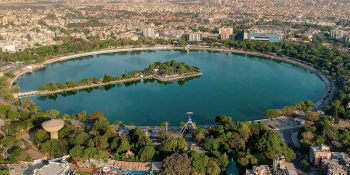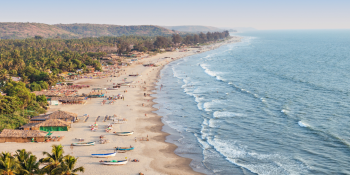In an age of constant digital connection and urban sprawl, the healing power of nature offers a sanctuary for both body and mind. Eco-therapy, also known as nature therapy or green therapy, harnesses the therapeutic potential of the outdoors to improve mental and physical well-being. Through a variety of outdoor adventures, individuals can reconnect with nature, rejuvenate their spirits, and find solace in the natural world.
Eco-therapy encompasses a wide range of activities, from simple nature walks to more immersive experiences like wilderness therapy and adventure-based counseling. The underlying principle is the belief that exposure to nature can have profound effects on human health, reducing stress, anxiety, and depression while promoting overall well-being. Research has shown that spending time in natural environments can lower blood pressure, boost immune function, and elevate mood.
One of the fundamental aspects of eco-therapy is mindfulness—the practice of being fully present in the moment. Nature provides the perfect backdrop for cultivating mindfulness, as individuals immerse themselves in the sights, sounds, and sensations of the natural world. Whether it’s the gentle rustle of leaves in the wind or the warmth of sunlight on their skin, participants learn to appreciate the beauty and tranquility of their surroundings.
Outdoor adventures play a central role in eco-therapy, offering opportunities for exploration, challenge, and personal growth. Activities such as hiking, camping, kayaking, and rock climbing not only provide physical exercise but also foster a sense of adventure and accomplishment. For many, overcoming obstacles in the wilderness can translate to increased resilience and self-confidence in other areas of life.
Wilderness therapy takes this concept a step further, combining outdoor expeditions with therapeutic interventions. Under the guidance of trained professionals, participants embark on multi-day backpacking trips or wilderness survival courses, using nature as a catalyst for personal transformation. Away from the distractions of modern life, individuals have the space and time to reflect on their thoughts and feelings, gaining insight into themselves and their relationships.
Adventure-based counseling adds another dimension to eco-therapy, integrating outdoor activities with traditional psychotherapy techniques. Through group challenges, trust exercises, and problem-solving tasks, participants learn to communicate effectively, build relationships, and develop essential life skills. The metaphorical lessons learned in the wilderness often carry over into everyday life, empowering individuals to overcome adversity and embrace change.
Perhaps the most significant benefit of eco-therapy is its accessibility. Unlike traditional forms of therapy, which may require a therapist’s office or clinical setting, nature is available to everyone, free of charge. Whether it’s a local park, forest trail, or scenic coastline, the healing power of nature is within reach for individuals of all ages and backgrounds. Even small doses of outdoor exposure can yield significant benefits, making eco-therapy a versatile and inclusive approach to wellness.
As society grapples with rising rates of stress-related illness and mental health disorders, the need for holistic and sustainable forms of treatment has never been greater. Eco-therapy offers a natural solution, harnessing the healing power of nature to promote overall health and well-being. By reconnecting with the earth and embracing outdoor adventures, individuals can find balance, resilience, and a renewed sense of vitality in their lives.
the healing power of nature is a potent force for both physical and mental well-being. Through eco-therapy and outdoor adventures, individuals can tap into the restorative properties of the natural world, fostering mindfulness, resilience, and personal growth. As we strive to create healthier, happier communities, let us not overlook the profound impact that nature can have on our lives.









